Speakers’ Abstracts and Biographies
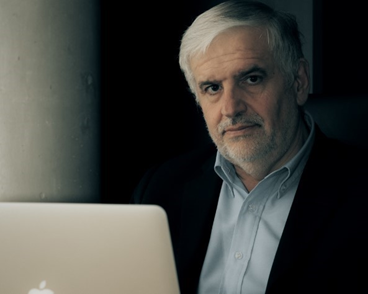
Ing. Agr, Fernando Vilella
Full Professor of Agribusiness, School of Agronomy of the University of Buenos Aires (FA-UBA). Director of the Bioeconomy Program FA-UBA. Consultant member of CARI (Argentine Council of International Relations).
Country: Argentina
Title: Global impact of the Argentine Bioeconomy and Circular Economy
Abstract: Historically, Argentina was one of the largest global exporters of food, although its participation in world trade has decreased in recent decades, it is undoubtedly an important part of global food security. It continues to be the main exporter of soybean meal and oil, the second of corn and the third of soybeans, among others. The internal restrictions and the dynamic and updated global entrepreneurs have been able to generate sustainable bioeconomic systems, which means that the carbon and water footprint of its grains is well below that of its competitors. To this is added the development based on circular economy that reinforce said sustainability. These appear in its main export products such as soybeans and corn and in both cases intertwined with the country-city connection. For maximum use, a Country Strategy is needed that, based on intense measurements, generates an identity of environmentally friendly Argentine products that reinforces its presence in world markets and generates greater internal proximity between our urban and rural sectors.
Biography: Fernando Vilella is an Agricultural Engineer from the FA-UBA, where he is the first full professor of the Agribusiness Chair, directs the Bioeconomy Program and was Dean from 1998-2006. He is part of important institutions of the agro-industrial chains such as Maizar, Solidagro and the Argentine Association of Bioefuels and Hydrogen. He co-founder and director (2006-2015) of the Agribusiness and Food Program of the FA-UBA. Director and consultant of projects for international organizations (FAO, IDB, IICA, ECLAC, UNIDO) and national organizations (IFC, PROSAP, National Ministries of Science, Agriculture, Productive Development, FUNDAR). Former member of the board of IAMA (International Association of Food Management and Agribusiness). Director of 64 research and consulting projects. He has published books (15), book chapters (12), scientific and technical articles (39 international and 30 national referees), and 150 international and national presentations at conferences. Awarded by the UBA, Ben Gurión University of Israel, La Nación newspaper, Clarín newspaper, El Federal magazine, the Book Foundation, the Professional Council of Agricultural Engineering, the Circle of Agrarian Journalists and LIDE.

John Stier, Ph.D.
Associate Dean and Professor, Herbert College of Agriculture, University of Tennessee, Knoxville
Country: United States of America
Title: “Post-Secondary Education for the Circular Bioeconomy of Agriculture and Natural Resources.”
Abstract: Student demographics and interests combine with university, industry, and governmental capacities and needs to shape educational offerings. Employer needs and emerging technologies such as robotics, artificial intelligence and data science are rapidly changing how our bioeconomy is developing. Current and projected needs and opportunities of workforce development for the bioeconomy will be described, followed by ways in which the needs might be met by post-secondary institutions.
Biography: John Stier is associate dean for academic and faculty affairs in the Herbert College of Agriculture at the University of Tennessee (UT). He earned bachelors and masters degrees in agriculture and plant pathology from The Ohio State University, and a PhD in crop and soil sciences from Michigan State University. He oversees student recruitment, curriculum, and career preparation at UT, collaborating with industries to ensure the university is responsive to employer needs. Dr. Stier has worked on industry and/or academic programs in multiple countries, ranging from a PhD program with the China Scholarship Council to summer-long student research and outreach projects for farmers in Belize. He is a Fellow of both the American Society of Agronomy and the Crop Science Society of America, and received the Crop Science Society’s Fred Grau award in 2020 for the greatest impact on turfgrass science research and outreach over the last 15 years.
Email: jstier1@utk.edu
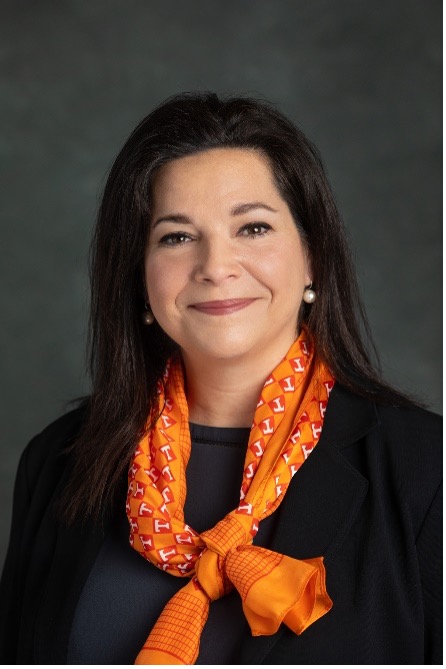
Gretchen Neisler, Ph.D.
Vice Provost of International Affairs, Director of the Center for Global Engagement, University of Tennessee, Knoxville
Country: United States of America
Title: “Triangulating the Connectivity of Education: Government, Private Sector, and Higher Education.”
Abstract: Education is a social investment aimed at shaping the present and the future. Like other investments, it should abide by the rules of a market that demands quality, relevance, durability and accessibility. In low-income economies, higher education and other units of governance (i.e. Ministries) (Neisler continued) do not consistently communicate and work together. This creates a gap in strategic planning for country level strategies and workforce development. Additionally, connecting the private sector and post-secondary education institutions to leverage their strengths in the delivery of education could help bridge this gap, strengthen education and ultimately lead to better learning outcomes for students.
Biography: Gretchen Neisler has been the senior international officer at the University of Tennessee Knoxville since August of 2018. Dr. Neisler provides leadership intended to help transform the University of Tennessee into a globally engaged modern R-1 university. She works closely with the university community to lead the development of the university’s strategic international agenda, and oversees the Center for Global Engagement., which encompasses the offices of Asia Engagement, Programs Abroad, International Support Services, International House, English Language Institute, and Global Research
Neisler received her Ph.D. in Higher Education Administration, Master of Science in Agriculture Extension Education, and B.S. in Agriscience Education and Animal Science from the Michigan State University.
Email: gneisler@utk.edu
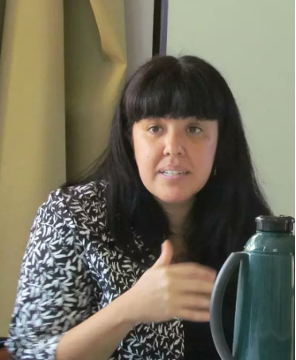
Romina Ochoa, CPN.
Head of the INTA Extra-budgetary Projects Management Unit
Country: Argentina
Title: “Extra-budgetary Funding Opportunities”
Summary: In 2021 after an evaluation of the institution in relation to INTA’s extra-budgetary financing, the Extra-budgetary Projects Management Unit (UGPE) was created to support interdisciplinary work between the INTA Group (INTA, Fundación ArgenINTA and INTEA S.A.). The UGPE permanently surveys for opportunities for external financing, internalizes the formalities and particular presentation mechanisms of each call, and interacts with the Regional Centers, the Research Centers, and the Assistant National Directions and Coordinations of INTA, to jointly analyze strategies of financing to the activities, its relationship with the institutional objectives and the link with the portfolio of own projects. Likewise, with the support of the Education and Training Management Unit, training is carried out for INTA personnel on the different financing proposals and the procedures for the presentation of interdisciplinary, interinstitutional, interjurisdictional and international projects are supported.
Biography: Accountant (Buenos Aires University). Romina Ochoa has been in charge of INTA’s new Extra-budgetary Project Management Unit since 2021. She has been working as an auditor and management since 2014 where she was employed as an international consulter at firm Price Waterhouse Coopers. In 2010 she joined the Research, Development and Innovation Agency, where she was responsible for the Management Control area and was in charge of auditing all the projects financed by funds from international organizations such as IDB, CAFF, WB. As of 2016, she was in charge of the Directorate of Interjurisdictional Relations of the Federal Council of Science and Technology, articulating mechanisms with science and technology authorities throughout the country with the objective of reducing the asymmetries of regional economies. Since April 2021, she has been in charge of INTA’s new Extra-budgetary Project Management Unit.
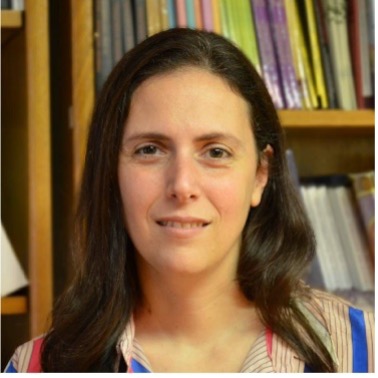
Ana Sonsino, M.Ed.
Manager of Education and Training, National Assistant Directorate “Development, Management and Strengthening of People” at INTA. Buenos Aires, Argentina
Country: Argentina
Title: Training at INTA: institutional tools and challenges for the formation of interdisciplinary teams.
Abstract: INTA (National Institute of Agricultural Technology) is an agency of the science, technology and innovation system that, through different processes and components, contributes to the sustainable development of the agro-bioindustrial system and the formulation of public policies. The 2015-2030 Institutional Strategic Plan states that knowledge is a strategic asset par excellence for value generation and education is a fundamental tool for promoting institutional innovation and achieving strategic goals. Within this framework, the Education and Training Management designs, coordinates and implements different lines of action aimed at accompanying educational trajectories and promoting the continuous updating of both staff and producers, technicians, professionals, students, teachers and the community at large. These actions are reflected in the Strategic Training Plan and the annual plans, which are flexible tools and built in a participatory way. These tools help to promote work in transdisciplinary and inter-institutional teams, the assessment and integration of knowledge and a strategic and prospective view.
Biography: Ana Sonsino. Master’s degree in education and ICT (e-learning) with orientation in management (Universitat Oberta de Catalunya), Specialist in Didactics, and Degree in Educational Sciences (University of Buenos Aires). She is Manager of Education and Training of the National Directorate Assistant Development, Management and Strengthening of People at INTA. She participates as an external researcher in the project “Educational, communicational, aesthetic and political dimensions of digital culture” of the National University of Quilmes. She teaches at the undergraduate and postgraduate level in various Universities in areas related to didactics, educational planning and management, educational technology and digital policies.
Email: sonsino.ana@inta.gob.ar
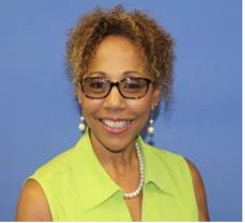
Jewell Winn, Ph.D.
Senior International Officer, Chief Diversity Officer, Assistant Professor/College of Education, Tennessee State University
Country: United States of America
Title: “Diversifying an Interdisciplinary Workforce through an SDG Lens.”
Abstract : Student experiences vary in STEM fields depending on socio-economic background, geographic region, and racial and gender background. These experiences are impacted by the teachers who serve them and the type of school they attend. Schools designated as high poverty tend to have fewer teachers who are certified in specific content areas, fewer advanced courses offered in STEM subjects and higher turnover than in wealthier schools. These concerns are a major factor when recruiting a diverse workforce. The United Nations Sustainable Development Goals provide resources and opportunities for K-16 institutions and organizations to think differently about how to prepare the next generation of STEM leaders.
Biography: Dr. Jewell Green Winn has over thirty-five years of experience in education. She provides leadership to the office of International Affairs at Tennessee State University as the Senior International Officer and Chief Diversity Officer. Dr. Winn holds a Doctorate of Education, Master of Public Administration, and Bachelor of Business Administration degrees. Her research interests include the intersection of diversity and international affairs, global strategies for minority-serving institutions, cultural competence in theory and practice, and the acculturation of international students. She has authored and co-authored articles and book chapters relative to diversity and internationalization efforts at HBCUs. She is the President of the Association of International Education Administrators; serves on the American Council on Education Women’s Network Advisory Council, the Association of Public Land Grant Universities Commission on International Initiatives, the Tennessee Diversity Consortium, and Alignment Nashville. She is also a member of Diversity Abroad, the Forum on Education Abroad, Women in Higher Education in Tennessee, and other civic/social organizations.
Email: jwinn@tnstate.edu
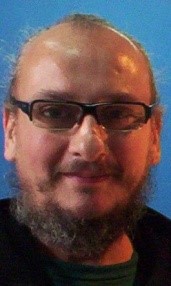
Néstor Caracciolo, Ph.D.
Senior Researcher at FIUBA (University of Buenos Aires, Faculty of Engineering. Professor and director of LaQuiAmCenter (Environmental Chemistry Laboratory, FIUBA)
Country: Argentina
Title: Low-Cost Treatment Reactors Design for Low Income areas: Copper Sorption on Dolomite in a Fixed Bed Tubular Reactor
Abstract: The contamination of water by heavy metals is becoming a serious health and environmental problem worldwide, being one of the biggest challenges of our time. Heavy metals such as Copper, Nickel, Zinc, or Lead are named by the Environmental Protection Agency as “priority pollutants” due to their toxic effects. Sorption is an effective method for the removal of heavy metals from aqueous solutions. The main disadvantage of the sorption process is the high cost of the adsorbent material, which can further increase the price of wastewater treatment. The use of abundant natural materials such as dolomite offer profitability and environmentally friendly technologies; we use a continuous fixed-bed system. We diagnose the type of flow inside the reactor by applying the axial dispersion module; to do this, we operated the reactor with small glass spheres that did not adsorb the metal, recording the concentration at the exit through a spectrophotometer.
Biography: Dr. Caracciolo has a Ph.D in Chemical Engineering from the University of Buenos Aires. His doctoral disertation was titled “Use of Polymeric Dispersions in reactors for Industrial Effluents Treatment”. He is a researcher at the University of Buenos Aires in the Chemistry Department. 2019-2020 Member of the Scientific Advisory Board of the 15th Conference on Sustainable Development of Energy, Water and Environment Systems. Cologne, Germany. Member of the Organizing Committee and the Scientific Committee of the 2nd Latin American Conference (2020) on Sustainable Development of Energy, Water and Environment Systems. Organized by SDEWES Centre, University of Zagreb and University of Lisbon. Buenos Aires, February 2020. 2019-current Member of the Curricular Commission of Industrial Engineering (FIUBA). Current Director of the Environmental Chemistry Laboratory (LaQuiAm). He directed the 2018 Project UBACYT: “Development of low-cost reactors for water treatment”; 2017 University Extension Project: “Contributions for intervention in housing improvement in the context of environmental pollution.” He has been faculty at the University of Buenos Aires since 2012. In 2018-2019 Member of the project “Cooperativism and Social Economy at the University”: “Healthy Water in pursuit of socio-environmental sustainability in Wichi Communities of northwestern Formosa with their schools”. INAES, Education Ministry, University Policies Secretary. Supervised theses: 3 doctoral theses in progress, 7 completed master’s theses and 7 completed bachelor’s theses. 8 patents filed, 7 in Argentina and 1 in Chile, 6 of them transferred to the industry. Participation in 5 book chapters, 20 articles in national and international referred magazines, 25 conference proceedings with reference. Presentations at conferences: Nationals: 40, Internationals 61.
Email: ncaracciol@fi.uba.ar – website: www.fi.uba.ar
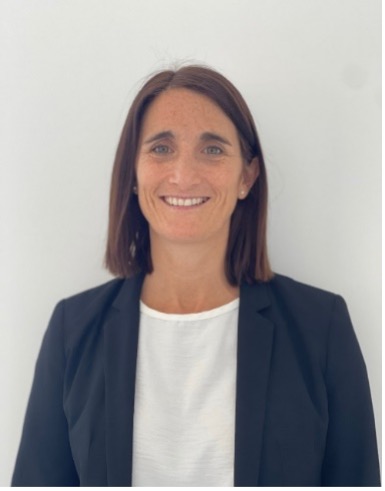
Josefina Eisele
Director for Latin America, Global Roundtable for Sustainable Beef (GRSB)
Country: Argentina
Title: “Raising Awareness and adoption of sustainable grasslands and livestock management amongst GRSB members”.
Abstract: Grasslands are vital for food production, nature conservation, and other ecosystem services such as regulating water flow and mitigating climate change. Across the globe, grasslands are under increasing pressure from increasing human populations, reduced areas with increasing livestock numbers, and declining terms of trade for livestock production. This presentation will focus on how the Global Roundtable for Sustainable Beef works collaboratively with otherse to disseminate scientific findinds to stakehoders on strategies to combat grassland degradation and manage grasslands for biodiversity, multifunctionality, and food production..
BIOGRAPHY: Josefina Eisele is graduated from the University of Buenos Aires has a degrees in Business Management. She is the Regional Director for Latin America for the Global Roundtable on Sustainable Beef. She has worked for GRSB since 2018 and have helped developed five livestock roundtables in Paraguay, Colombia, Mexico, Bolivia and Argentina. Previous to her current position she worked as the Director of Peterson Consultancy, a sustainability strategy consulting firm, part of Control Unión Group. She also worked at a Dutch NGO Solidaridad and previous to that she worked for the Financial Sector at the Sustainability area. Josefina Eisele is graduated from the University of Buenos Aires has a degrees in Business Management. She is the Regional Director for Latin America for the Global Roundtable on Sustainable Beef.

Martín Bruno, Ing. Agr.
Doctoral scholar at CONICET (National Scientific and Technical Research Council of Argentina) and INTA (National Institute of Agricultural Technology of Argentina).
Country: Argentina
Title: “Dynamics of the Generation of Vegetable Waste in Fruit and Vegetable Wholesale Market in the Metropolitan Area of Buenos Aires (AMBA): Alternatives for its Comprehensive Management.”
Abstract: Fruit and vegetable wholesale market are an important element in the food trade network of the AMBA, providing a logistic support that allows absorbing large volumes of products and placing them fast. As part of their activity, considerable volumes of discards are generated daily, which are mainly unmarketed surpluses, making the markets strategic spaces for the strengthening of waste reduction and food ordering in the AMBA. The following work aims to understand the processes of organic solid waste (OSW) generation and food loss in the AMBA fruit and vegetable concentrator markets from a multidimensional perspective. It is expected to be a contribution (M Bruno continued) to enhance the social role of fruit and vegetable wholesale market in the AMBA and collaborate to generate experiences of food donation and integrated waste management, with positive impacts on the economic, social, environmental and health dimensions.
Biography: Martín Bruno is an INTA-CONICET doctoral scholarship holder, completing his doctorate at the Universidad Nacional de La Plata (UNLP) under the title of “Dynamics of the generation of vegetable waste in fruit and vegetable wholesale market in the metropolitan area of Buenos Aires (AMBA): alternatives for its comprehensive management”. He has publications in scientific journals as main author and co-author, oriented to food loss and waste, urban solid waste (RSU), environment, supply markets, innovation in production systems and rural development.
Within INTA, it is part of the Disciplinary Project (PD-L04-I123) “Rescue of food, use of by-products, residues and discards of agro-bioindustry for food use and added value”, the Specific Project (PE) I173 of ” Marketing and consumption of Family Farming products”, the “Loss Prevention Network (harvest and post-harvest) and Food Waste” and the “Regional and Territorial Development Program by Thematic Area”, continuing its research on organic waste generated by the fruit and vegetable wholesale market of the AMBA.
Email: martin.bruno@inta.gob.ar
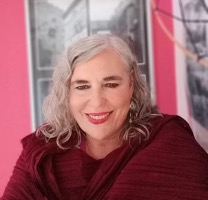
Beatriz Giobellina, Ph.D.
Senior researcher at INTA (National Institute of Agricultural Technology). Professor at Faculty of Architecture, Urbanism and Design of Córdoba National University, Argentina.
Country: Argentina
Title: “Territorial Planning and Climate-Smart Agriculture (ACI) for the Sustainability of Local Food Production Systems in the Food Region of Córdoba (RAC), Argentina.”
Abstract: The historic Green Belts and peri-urban fresh food production systems close to cities –fruits, vegetables, eggs, chickens, etc.- are systematically disappearing in Argentina and in other cities around the world. Some causes: lack of territorial and urban planning aware of the strategic importance of food production close to the city, or competition for land use with other activities with high profitability in the short term (real estate market or the production of commodities) . The territorial system is also weakened by the growing vulnerability of family farming, which maintains low-tech traditional productions, dependent on imported inputs, unable to set a fair price for its products, without access to land ownership and with very high rents. For some decades, also affected by the impact of local and global environmental change, which manifests itself with a high variability and unpredictability of extreme weather events (EME), and by exposure to drifts of agrochemicals harmful to human health, the environment and horticulture, due to the extensive production that surrounds them. In the RAC for years, the O-AUPA (Observatory of Urban, Peri-urban and Agroecology Agriculture) with headquarters at INTA Córdoba, has formed an interdisciplinary, inter-actor and inter-institutional cooperation (Giobellina continued) network, which works to identify these problems and of the challenges to reduce vulnerabilities of these systems. Some innovations underway are socio-organizational – Agroclimatic and Environmental Technical Tables (MACA); productive ACI –crop management and organization strategies, transition to agroecology, incorporation of appropriate infrastructure and machinery-; incorporation of digital technology and satellite applications, such as an early warning system and monitoring of EME and agrochemical drift events -APP HARVEST-; and efforts to generate new territorial planning figures.
Biography: Architect, International Specialist in Spatial Planning and the Environment; Master’s Degree in Management of Business Innovation, and Doctor from the Polytechnic University of Valencia in Legal Regime, Territorial Planning, the Environment and Urban Planning. She is a specialist in issues that contribute to the sustainability of urban settlements. She focuses on territorial planning with an emphasis on the study of peri-urban interfaces -urban-natural and urban-rural-; within them, to the food systems close to the cities, mainly horticulture and farm, understanding them as strategic green infrastructures for sustainable urban development. She provides a look at the complexity of these systems based mainly on family farming and integrates aspects of adaptation and mitigation of climate change. Another line of research is the coexistence conflicts between extensive production and urban settlements, due to contamination by drift of agrochemicals. She has created and coordinates the O-AUPA Observatory (Urban Agriculture, Periurban Agriculture and Agroecology) based at INTA AER Córdoba, and the Periurban Network that articulates different research teams and other social actors linked to the issues she works on. She is also an Assistant Professor of Architecture IIIC and holder of Environment and Society at FAUD-UNC. She is director and co-director of postgraduate students with CONICET, CONAE, UNC scholarships. She has 15 published books and several magazine articles and book chapters.
Email : b.gibellina@gmail.com
Website: http://inta.gob.ar/personas/giobellina.beatriz

Melina Ginszparg
Fulbright Program Deputy / Education USA Advisor
Country: Argentina
Title: Funding Opportunities through Fulbright: INTA-Fulbright, CONICET-Fulbright Scholarships and Youth Educational Opportunities
Abstract: The presentation provides a summary of the Fulbright program globally and in Argentina, and introduces the different scholarship opportunities available, mainly for short research stays and awards at the graduate and undergraduate level.
Biography: Melina Ginszparg joined the Argentine Fulbright Commission in 1998. As Program Deputy and EducationUSA Academic Adviser she oversees the different Fulbright programs and conducts advising activities. She holds a degree in Political Science from University of Buenos Aires and pursued graduate courses in International Studies at Torcuato Di Tella University and at Johns Hopkins School of Advanced International Studies(SAIS). Ms Ginszparg has previously worked for the Woodrow Wilson International Center for Scholars in Washington DC, where she conducted research, collaborated on writing projects and edited and translated publications. Additionally, she has collaborated on reports about Latin America and coordinated several international conferences. She has taught undergraduate courses in Political Science and International Relations at the University of Buenos Aires.
Email: mginsz@fulbright.com.ar